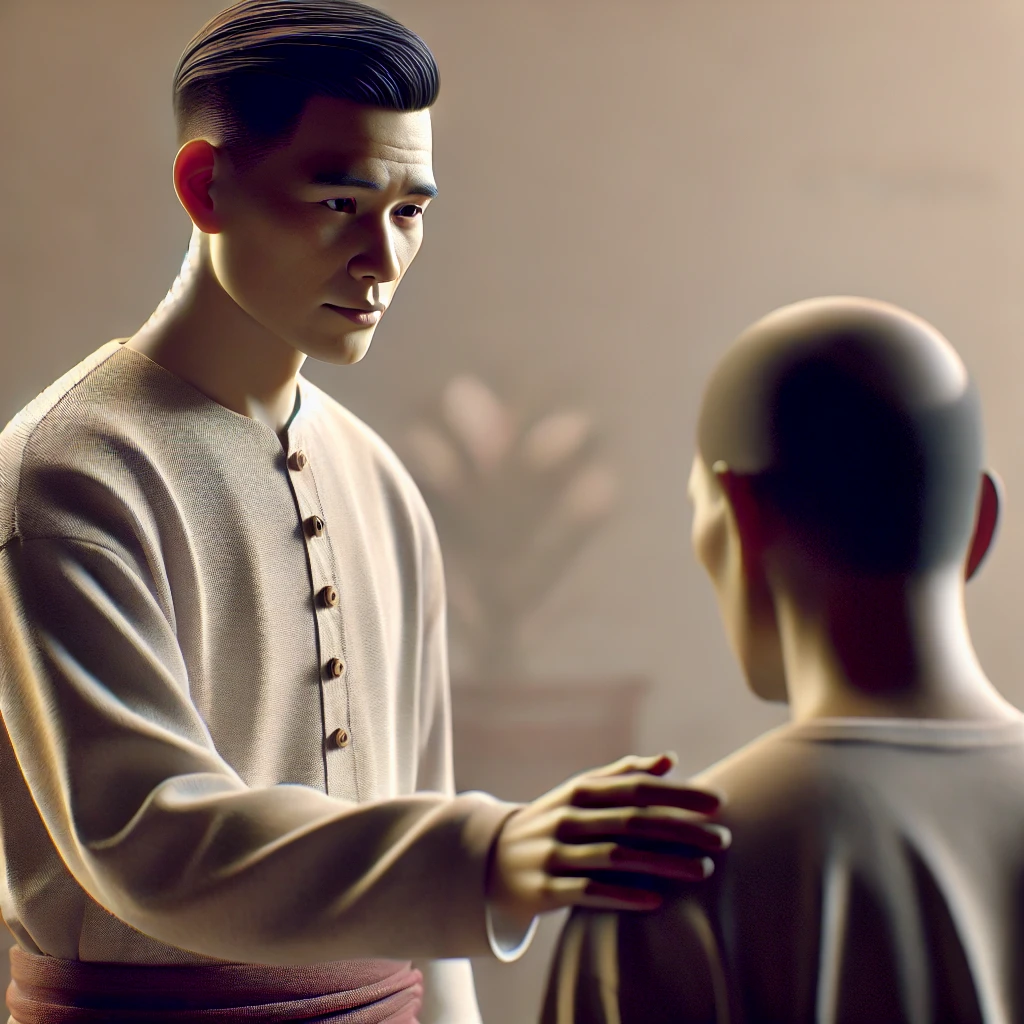Amor propio, a Spanish term meaning “self-love” or “self-respect,” holds significant importance in Filipino culture and society. This concept encompasses a deep-rooted sense of personal dignity, honor, and pride that Filipinos hold dear. Amor propio is not merely an individual trait but a collective cultural value that shapes interpersonal relationships, social interactions, and national identity. Understanding amor propio is crucial for comprehending Filipino psychology, behavior, and social dynamics. This blog post delves into the multifaceted nature of amor propio, its historical context, manifestations in daily life, and its impact on various aspects of Filipino society.
Historical Context of Amor Propio in the Philippines
Colonial Influences and the Development of Amor Propio
The concept of amor propio in the Philippines has its roots in the country’s complex colonial history. During the Spanish colonial period (1565-1898), the Filipino people were subjected to various forms of oppression and discrimination. This experience fostered a strong sense of self-preservation and dignity among the native population. The Spanish language and culture, including the concept of “amor propio,” were integrated into Filipino society during this time. However, the Filipino interpretation of amor propio evolved to encompass not just individual self-respect but also a collective sense of national pride and identity.
The subsequent American colonial period (1898-1946) further shaped the Filipino understanding of amor propio. The introduction of American values of individualism and democracy influenced how Filipinos perceived personal dignity and self-worth. The struggle for independence during this period also reinforced the importance of national pride and self-respect on both individual and collective levels.
Manifestations of Amor Propio in Filipino Culture
Personal Dignity and Face-Saving Behaviors
Amor propio manifests itself in various aspects of Filipino culture, particularly in the emphasis on personal dignity and face-saving behaviors. Filipinos place great importance on maintaining a positive public image and avoiding shame or embarrassment, known as “hiya” in Tagalog. This concern for preserving one’s dignity often leads to indirect communication styles and conflict avoidance. For instance, Filipinos may use euphemisms or speak in roundabout ways to avoid directly contradicting or offending others, thereby preserving both their own amor propio and that of their conversation partners.
Social Harmony and Respect for Authority
Another significant manifestation of amor propio is the Filipino emphasis on social harmony and respect for authority. The concept of “pakikisama” (getting along with others) is closely tied to amor propio, as maintaining good relationships is seen as essential for preserving one’s dignity and social standing. Respect for elders and authority figures is also a crucial aspect of Filipino amor propio, reflected in the use of honorific titles and deferential behavior towards those in positions of power or seniority.
Impact of Amor Propio on Filipino Society
Education and Academic Achievement
Amor propio plays a significant role in shaping attitudes towards education and academic achievement in the Philippines. The pursuit of education is often seen as a means of enhancing one’s dignity and social status. Filipino families typically place a high value on educational attainment, viewing it as a source of pride and a path to upward social mobility. This emphasis on education as a manifestation of amor propio is reflected in various statistics:
| Indicator | Value (Year) |
|---|---|
| Literacy Rate | 96.4% (2015) |
| Tertiary Education Enrollment | 35.7% (2014) |
| Government Expenditure on Education (% of GDP) | 2.7% (2009) |
Source: UNESCO Institute for Statistics (2017)
Professional Life and Career Aspirations
In the professional sphere, amor propio influences career choices, work ethics, and aspirations for success. Many Filipinos view their careers as extensions of their personal dignity and strive to excel in their chosen fields. This drive for professional achievement is often motivated by a desire to bring honor to one’s family and community, as well as to enhance one’s own social standing. The importance of amor propio in the workplace is evident in the following data on Filipino labor force participation and employment:
| Indicator | Value (Year) |
|---|---|
| Labor Force Participation Rate | 60.6% (2016) |
| Employment-to-Population Ratio | 94.5% (2016) |
| Unemployment Rate | 5.5% (2016) |
Source: Philippine Statistics Authority (2017)
Amor Propio in Filipino Politics and Governance
National Pride and Sovereignty
Amor propio extends beyond individual and social realms to influence Filipino politics and governance. The concept of national pride and sovereignty is deeply intertwined with amor propio, shaping the country’s foreign policy and diplomatic relations. Filipino leaders often invoke the nation’s dignity and self-respect when addressing international issues or negotiating with foreign powers. This emphasis on national amor propio is reflected in public opinion surveys on national pride:
| Indicator | Percentage (Year) |
|---|---|
| Proud to be Filipino | 94% (2015) |
| Believe Philippines is a Sovereign Nation | 89% (2015) |
Source: Social Weather Stations (2015)
Political Participation and Civic Engagement
Amor propio also influences political participation and civic engagement in the Philippines. The desire to uphold personal and national dignity motivates many Filipinos to actively participate in the democratic process. Voter turnout in Philippine elections is generally high, reflecting the importance placed on exercising one’s right to vote as a matter of personal and national pride:
| Election Year | Voter Turnout |
|---|---|
| 2016 (Presidential) | 81.95% |
| 2013 (Midterm) | 77.31% |
| 2010 (Presidential) | 74.99% |
Source: Commission on Elections (COMELEC) (2016)
Challenges to Amor Propio in Contemporary Filipino Society
Economic Disparities and Social Inequalities
Despite the strong cultural emphasis on amor propio, contemporary Filipino society faces challenges that can undermine individual and collective self-respect. Economic disparities and social inequalities pose significant threats to the dignity of many Filipinos, particularly those living in poverty. The struggle to meet basic needs can often overshadow concerns for personal dignity and self-respect. These challenges are evident in the following socioeconomic indicators:
| Indicator | Value (Year) |
|---|---|
| Poverty Incidence | 21.6% (2015) |
| Gini Coefficient (Income Inequality) | 44.4 (2015) |
| Unemployment Rate | 5.7% (2017) |
Source: Philippine Statistics Authority (2017)
Globalization and Cultural Identity
The forces of globalization present both opportunities and challenges to Filipino amor propio. On one hand, increased global connectivity allows Filipinos to showcase their talents and achievements on the world stage, enhancing national pride. On the other hand, the influx of foreign cultural influences can lead to a sense of cultural erosion and identity crisis, particularly among younger generations. This tension between global integration and cultural preservation is reflected in various social indicators:
| Indicator | Percentage (Year) |
|---|---|
| Filipinos Proud of their Culture | 96% (2013) |
| Youth Fluent in Native Language | 73% (2015) |
| Households with Internet Access | 39.1% (2016) |
Sources: Social Weather Stations (2013), Philippine Statistics Authority (2016)
Nurturing Amor Propio in Modern Filipino Society
Education and Cultural Awareness Programs
To address the challenges facing amor propio in contemporary Philippines, various initiatives focus on strengthening cultural awareness and promoting national pride through education. The Department of Education has implemented programs to integrate Filipino values, including amor propio, into the curriculum. These efforts aim to instill a strong sense of cultural identity and self-respect in young Filipinos:
| Program | Focus Area |
|---|---|
| K to 12 Basic Education Program | Values Education and Character Development |
| Mother Tongue-Based Multilingual Education | Preservation of Local Languages and Cultural Identity |
| Araling Panlipunan (Social Studies) | Filipino History, Culture, and Civic Education |
Source: Department of Education (2017)
Economic Empowerment and Social Justice Initiatives
Recognizing that economic stability is crucial for maintaining personal dignity, various government and non-government organizations have launched initiatives to promote economic empowerment and social justice. These programs aim to provide opportunities for Filipinos to improve their livelihoods and assert their rights, thereby enhancing their sense of self-worth and dignity:
| Initiative | Objective |
|---|---|
| Pantawid Pamilyang Pilipino Program (4Ps) | Conditional Cash Transfer for Poverty Alleviation |
| TESDA Skills Training Programs | Vocational and Technical Education for Employment |
| Microfinance and Small Enterprise Development | Support for Entrepreneurship and Self-Employment |
Source: Department of Social Welfare and Development (2017)
The Future of Amor Propio in the Philippines
As the Philippines continues to navigate the challenges of the 21st century, the concept of amor propio remains a vital aspect of Filipino identity and culture. The ongoing efforts to balance tradition with modernity, and national identity with global citizenship, will shape the future expression of amor propio in Filipino society. Educational initiatives, economic development programs, and cultural preservation efforts all play crucial roles in nurturing a healthy sense of self-respect and dignity among Filipinos.
The resilience of amor propio as a cultural value suggests that it will continue to influence Filipino behavior, social interactions, and national aspirations in the years to come. However, its manifestations may evolve to reflect changing social norms, technological advancements, and global influences. The challenge for Filipino society will be to maintain the essence of amor propio while adapting to the demands of an increasingly interconnected world.
Conclusion
Amor propio stands as a fundamental pillar of Filipino culture, shaping individual behavior, social dynamics, and national identity. Its influence extends across various aspects of Filipino life, from personal relationships to education, professional aspirations, and political engagement. While contemporary challenges such as economic disparities and globalization pose threats to traditional notions of amor propio, ongoing efforts to nurture this cultural value through education, economic empowerment, and cultural awareness programs demonstrate its enduring importance in Filipino society.
Understanding and respecting the concept of amor propio is crucial for anyone seeking to engage effectively with Filipino culture, whether in personal, professional, or diplomatic contexts. As the Philippines continues to develop and integrate into the global community, the preservation and evolution of amor propio will play a vital role in maintaining the unique cultural identity and dignity of the Filipino people.
Disclaimer: This blog post is based on research and data available up to 2017. While every effort has been made to ensure accuracy, readers are encouraged to consult current sources for the most up-to-date information. Please report any inaccuracies so we can correct them promptly.




